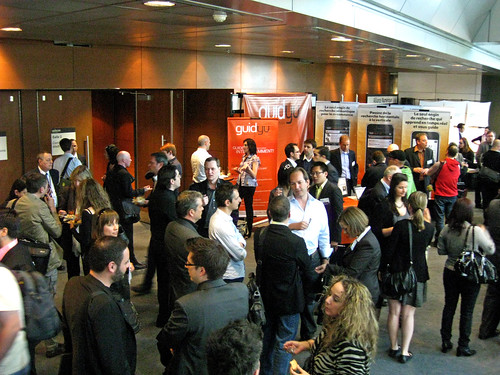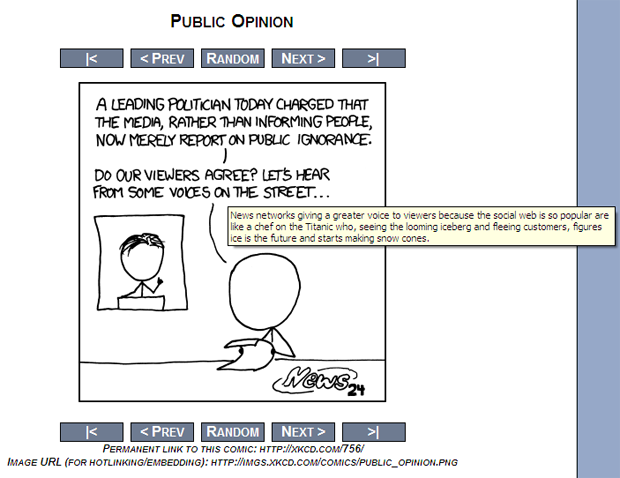Welcome to MIXMÉDIAS Montreal on May 17th
May 9th, 2012 by bruno boutotI am thrilled to personally invite you to the MIXMÉDIAS Conference that will be held in Montréal on May 17th, 2012. This will be one of the most exciting and lucrative professional days this spring and I am delighted that you will attend. But what is it exactly?
When Michel Chioini asked me, just over a month ago, if I was interested in organizing an international conference in the context of CONNECT 2012, I was blinded by my enthusiasm since I immediately agreed to take on this challenge. What a great opportunity it has been!
Marketing and Media on the Web? I have lived and breathed little else for the last fifteen years. It’s my career, my livelihood, and my daily pleasure. The idea of gathering in Montreal the best minds in the business enchanted me. Of course, that meant I had to find people in a very short time period, but the responses have been very positive, including from those who were interested but unavailable.
Each day I experience the same challenges that my marketing, media and advertising colleagues face on the Web. So with them, I wanted to get answers to two pressing questions:
Revenue: How does one make money on the Web? Not tomorrow, not soon, TODAY!
Content: What new types of Web content are profitable? NOW!
I received some exceptional answers. We will immediately be able to integrate the practical aspects of Web Business.
Ben Kunz is a master in his trade: he has considerable experience in media sales; his analysis is brilliant and his humour sharp. While some of us may have a tendency to be over-zealous (no, I’m not talking about you, for God’s sake), Ben’s “No Bullshit” attitude is very refreshing. So the day will start on the right foot.
Many of us working in marketing and media are still daunted by the question of Web revenue opportunities. The time has come to change that.
Bryan Segal will bring us up to date. Most big businesses use Comscore. Bryan will present their recent whitepaper on the new nature of advertising. A panel of experts, from the Internet Advertising Bureau will follow him. They will enlighten us about Real Time Bidding.
Andy Nulman lost money on the Internet but now he’s making a profit. We’ll see how he turned things around, with fanfare and flair. Michelle Blanc’s experience is worth its weight in gold; when she takes the stage she will get to the heart of the matter by telling us “How to make ca$h with content!”
We will also hear from the incomparable Stowe Boyd. His metaphor of Liquid Media brings light to the job we do in the sometimes bewildering World Wide Web.
Arjun Basu has accompanied his clients from print to the Internet, then through Web integration of their business strategies. He’ll share the stage with Craig Silverman, one of the top Web Journalists, who just happens to be a Montrealer.
One of the most important Web discoveries is the opportunity for personal contact with our consumers. New interactions have been generated through social media, but now more and more big business and up-and-comers create their own platforms to welcome their members… and to do business with them!
Craig will interview William Mougayar, CEO of Engagio, who has an earth-shattering point of view: “Conversation is the new Web content!” We are looking forward to that, just as much as we are looking forward to Jessamyn West, who will follow him. She is the Director of Community at MetaFilter, one of the most successful and respected communities on the Web. She has vast experience in the art and ways of creating quality content with members.
Rich Millington, from London, UK, is the world top specialist for business communities, period. We would be wise to make the most of this exceptional opportunity.
The speakers wanted to know who YOU are. I told them, “Montreal’s best. They will want to talk to you and ask questions. Give us the best you’ve got.” They are therefore ready for your questions, whether in the conference room or elsewhere. Don’t be shy!
So I invite you to share this special day with me.
The venue is fantastic: it’s the ICAO building, a United Nations agency!
If your name is on this page, the conference is on me. Email me bruno@boutotcom.com.
If you are one of my contacts on facebook or Linkedin, or if I follow you on Twitter (or @boutotcom in French) you are a “member of boutotcom”: you are eligible for a reduced rate. On the Register page (Inscription), in the Discount window (Rabais), select boutotcom.
If you are 10 or more, contact info@eventia.ca for a great deal.
It will be a very profitable event, yet without pressure or stress: we’re between friends. This most enriching day is not to be missed. It will be even better if you are there. :-)
Follow @MIXMEDIAS #MIXMEDIAS Like MIXMÉDIAS











